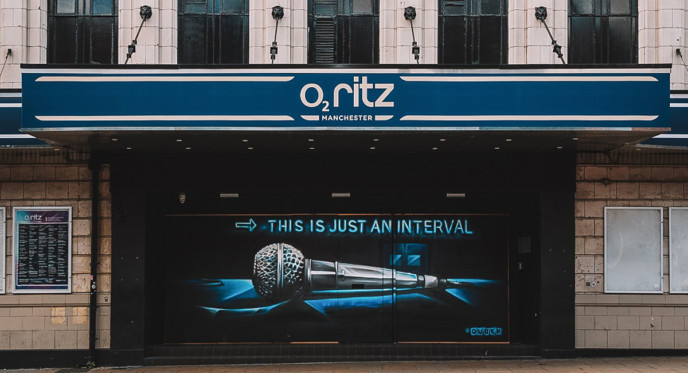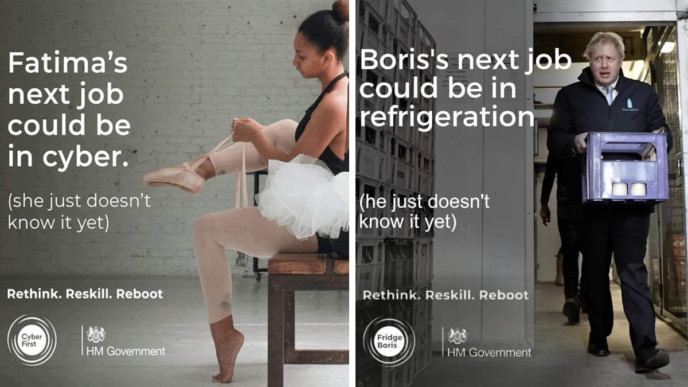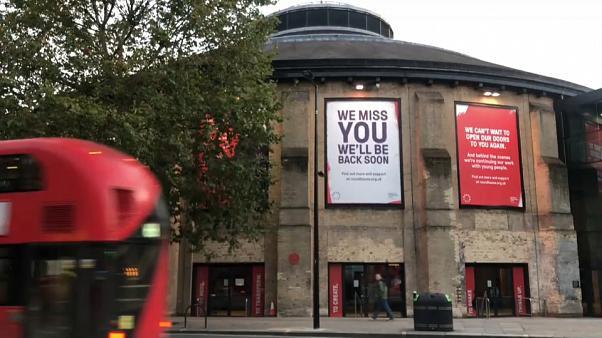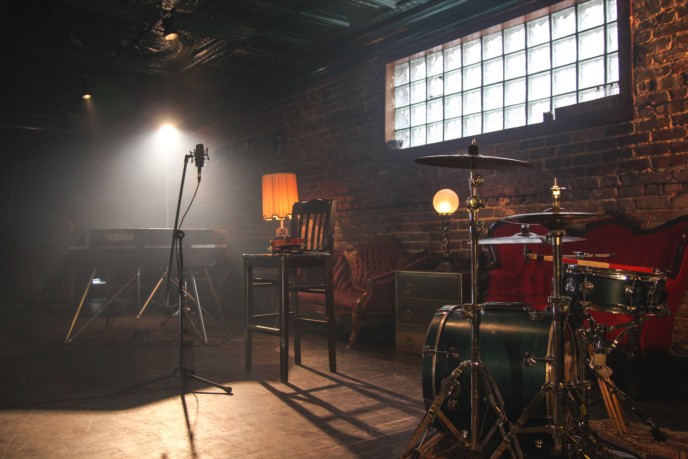The State of the Arts in the UK, post-covid
Musique - 14.12.2020

O2 Ritz in Manchester
The UK risks losing its place at the vanguard of cutting-edge music and grassroots nightlife in 2021. Can it ever be saved without changing the way we value and monetize music?
There is no denying that the UK government’s handling of this year’s pandemic has been, as we say in England, ‘a shambles’ (“a state of total disorder”). It’s been embarrassing. From beginning to end, Boris & the Gang have inspired hope in very few and it’s very difficult to find anyone that agrees with anything Johnson has done this year. Contradictory advice and counterintuitive measures have flooded the front pages of papers and, let’s be honest, it feels like nobody really believes a word of it anymore. The blonde-haired buffoon – no, not that one – that is leading from London is not the person you want to be the face of a country in crisis. Regardless, it hasn’t been all bad.
Against the backdrop of a forced economic recession which is doomed to impact us for years to come, the UK music and art scene has received a lot of press for the way that the government has mishandled its funding and denigrated its status. The most famous incident of the year involved an advert made for CyberFirst, a government-run education programme. The advert features a tired ballerina taking her slippers off under the headline “Fatima’s next job could be in cyber”. This caused a massive outcry from the British public and, of course, British artists as the advert was made soon after the Chancellor Rishi Sunak suggested artists “should retrain and find other jobs”.

‘Fatima’ ad campaigns (on the left) and a joke on Boris Johnson (on the right)
The result?
People believing that this advert demonstrated exactly what this Conservative government thinks about the arts, that they’re a “decadent, luxurious hobby”. Having said that, it’s fair to say that the government has and continues to provide the Arts Council with significant funding to be distributed accordingly to artists, venues and other industry professionals. Most recently, £1.57 billion has been injected into the sector via the ‘Culture Recovery Fund’ to save “British cultural icons” and “irreplaceable parts of our heritage”.
Sounds good, right? Unfortunately, it’s the way that the money is being distributed that is causing the problems with some venues missing out on funding because they’re deemed “not culturally relevant enough” as well as not covering professionals such as sound technicians and tour managers. Freelance individuals set up as Ltd. companies and those whose earnings are split between self-employed work and non-furloughed taxable income also can not benefit from these financial relief schemes. For those who can’t apply for funding, the only option might be to enroll in the government’s Universal Credit scheme which covers the bare essential living costs. Not ideal for an Arts industry which provides an annual £10 billion to the UK economy.
⅓ of professional musicians say they can’t access the emergency funding
British music is renowned across the world for the depth of its quality and its presence at the vanguard of significant, emerging cultural movements but it risks losing its place on the stage as leader of cutting-edge music. The industry was absolutely thriving pre-Covid, growing by 11% in 2019 and generating £1.3bn. According to UK Music, a government organisation, the industry is now expected to half by next year and see losses of £3bn. As it stands, ⅓ of professional musicians say they can’t access the emergency funding with 64% considering leaving the industry for good. Most of the support going to venues is going to those that are already very much established in British culture from museums and opera theatres to famous clubs like London’s Fabric and Bristol’s Motion, whereas thousands of independent venues are left to fight for their survival and, most likely, lose. Currently, only 17% of UK grassroot venues are financially secure for the next two months.

Roundhouse in Camden, London
Beyond the numbers, it’s quite difficult to make sense of the scale of this pandemic’s impact on the music industry. It will be many years before stories emerge of the artists who suffered the most from this pandemic but, it must be said, there are many who have taken it as an opportunity to shake things up for the better.
Will Robinson, founder of Nottingham-based independent label ‘I’m Not From London’ tells me of his many musician friends who have retrained as gardeners, woodworkers and social media marketers and have actually found some success in it. He himself has taken a break from organizing those sweaty, intimate gigs that we all miss to co-found FisherGate Point, a new centre for the arts that will provide opportunities for artists and highlight local talent.
Musicians like Pete Beardsworth of Three Body trio and Yazmin Lacey’s band have moved away from big cities and taken the opportunity to recalibrate and take a creative break. For people like Pete, the government funding has actually been sufficient to live comfortably enough as a full-time musician during the lockdown. The situation isn’t all that bad for everyone but it is very bad for some.
Thanks to those who have had the initiative and mental strength to keep on working towards improving their future, beyond the lockdown, it can be said that “we’re seeing creative energy in the music industry that far surpasses anything seen before” and promising signs for 2021 are being shown.
Change for the better
One thing which many commentators around the world are considering is the potential for the music industry as a whole to be transformed in order to treat artists more fairly. The way that musicians are being monetized for their work is appalling and outdated with artist-label relations barely having changed since the 70’s. With streaming royalties collapsing for most artists and concerts no longer possible, it’s time to reconsider the way we deal with music. This pandemic has exposed an imbalance in the system that favours labels and consumers but not artists who are taken advantage of.
It seems like the rich are getting richer while the independent players are suffering but progress and revolution always start from the bottom. By looking at how artists and independent labels are thinking outside of the box to bring a new experience of music to us in 2021, we can remain hopeful that the industry will resist but, most importantly, change for the better.
Reconsidering of the value we want to give our art
Perhaps it’s because we don’t really understand what music and the arts are on a more fundamental level that we can only really come to know their value through their absence. Music, in particular, is essential for good mental health. The transportative power that it has to remind us of past moments of innocent joy and fond nostalgia when life is at its most bleak and depressing. The ability that it has to cheer us up, relax us, energize and bring moments of euphoria are not to be taken lightly – nothing else in the world has this power over us without having negative side effects.

Credits : John Matychuk
We all know this but we choose to turn a blind eye to the way that we have all been devaluing our art. We choose to download it for free and refuse to pay a miniscule 99p for a beautiful composition that we can access forever. Any progressive revolution that is to happen within the industry must begin from a reconsidering of the value we want to give our art.
All in all, the situation in the UK is far from perfect but it’s easy to imagine that it’s doing considerably better than countries that can’t offer government subsidies to individuals and businesses. Its financial benefit system is being justified after many years of it being famously exploited by many and the Arts, overall, are being kept afloat. This unprecedented, unforeseen situation of scarce jobs, money, opportunities is motivating our most creative citizens to push the envelope and think their way out of this crisis. Surely, that’s a good thing.
Abonnez-vous à notre POP NEWS hebdomadaire ici.
Liam MacGregor-Hastie


